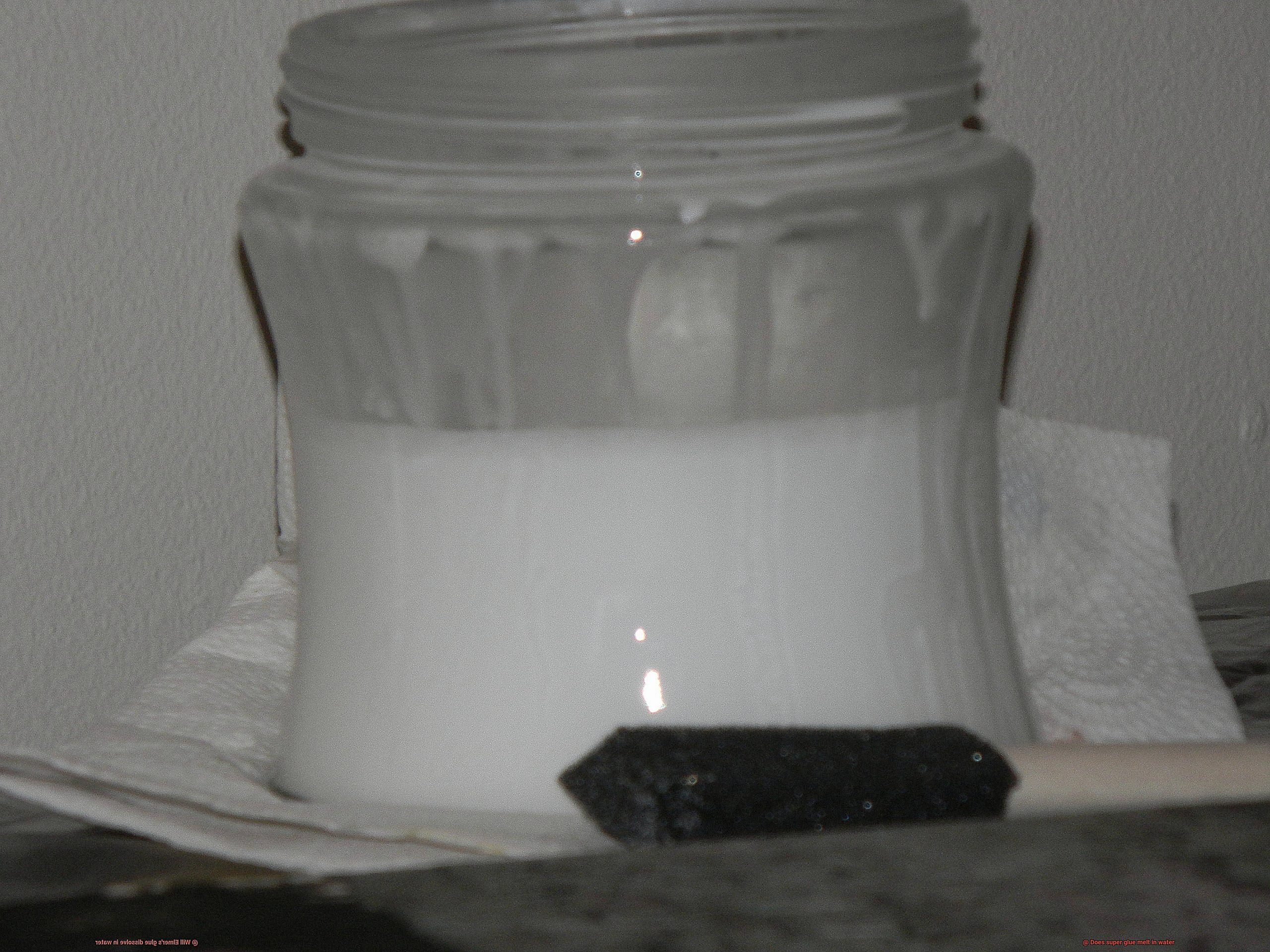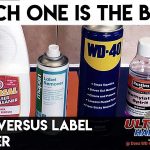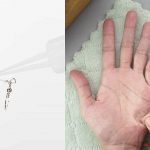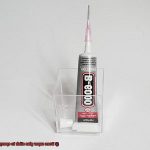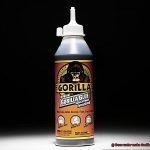Are you a DIY enthusiast or someone who loves fixing things around the house? If so, then you know how important glue is for any repair work. Whether it’s fixing broken objects or mending holes in your shoes, glue is an essential tool. However, what happens when you accidentally apply too much glue or make a mistake in its application? That’s where the question arises – can water cure glue?
Water is a ubiquitous substance found in most households, and it’s tempting to use it to cure glue. But, unfortunately, the answer isn’t as simple as a “yes” or “no.” The type of glue and its properties determine whether water can cure it. Different types of adhesives such as PVA, super glue, hot glue, and many others react differently to water.
In this blog post, we will delve into the topic of “Does water cure glue?” We’ll explore how the chemical composition of different types of adhesives affects their reaction to water. Additionally, we’ll take a closer look at the science behind curing glue with water and whether it’s a viable solution for fixing mistakes. So sit tight and keep reading to discover the answer to this common question and learn more about this fascinating topic.
What is Glue?
Contents
- 1 What is Glue?
- 2 Different Types of Glue
- 3 Does Water Cure Glue?
- 4 Considerations for Using Water to Cure Glue
- 5 How Can Water Affect Different Types of Glue?
- 6 Temperature of the Water and its Effects on Glue
- 7 Advantages and Disadvantages of Using Water to Cure Glue
- 8 Tips for Safely Using Water to Cure Glue
- 9 Conclusion
Glue, a fascinating substance, has been utilized for thousands of years, dating back to ancient civilizations such as the Egyptians and Greeks, who used natural substances like animal bones and glues made from milk protein and blood. Today, it is an essential tool in various industries and applications, from construction and woodworking to art and crafts.
At its core, glue is an adhesive substance used for bonding materials together. Its effectiveness is based on the basic principle of creating a strong connection at the molecular level between two surfaces. It achieves this by penetrating into the microscopic pores of a material’s surface, creating a tight seal that holds the two surfaces together.
There are several types of glue available on the market today, each designed for specific applications and materials. Some of the most common types of glue include:
- White Glue: This water-based adhesive, also known as school glue or PVA glue, is great for use on porous materials like paper, cardboard, and wood. It dries clear and can be thinned or dissolved with water for easier removal.
- Super Glue: A fast-drying cyanoacrylate adhesive that forms an almost instant bond between non-porous surfaces like metal and plastic.
- Epoxy: An industrial-strength adhesive that comes in two parts – a resin and a hardener. When mixed together, they create a powerful bond perfect for use on materials like concrete, metal, and glass.
Aside from its effectiveness in bonding materials together, some glues offer additional benefits such as resistance to water, heat, or chemicals. Understanding the specific properties of each type of glue is crucial to ensure the best results.
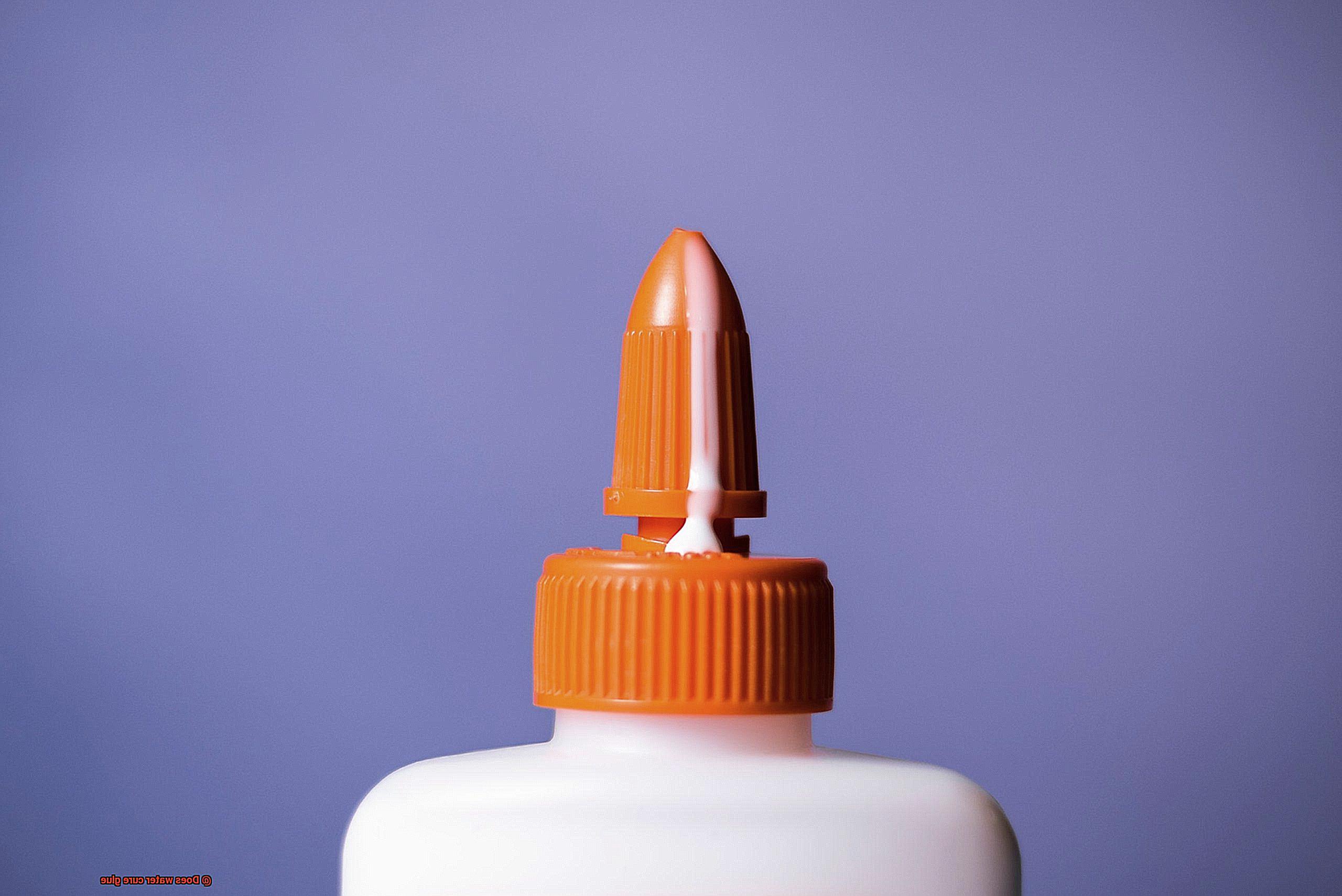
When it comes to removing glue, water can be a helpful tool in certain situations. Water-based glues like white glue can be thinned or dissolved with water, making them easier to remove from surfaces. However, other types of glue like superglue or epoxy are not water-soluble and will not be affected by water.
Different Types of Glue
Glue is a versatile substance that can be used for a variety of projects, from school crafts to woodworking and industrial applications. However, not all glue is created equal, and it’s important to understand the different types of glue and their uses before embarking on any project. Here are five sub-sections that explore the different types of glue available:
White Glue:
White glue, also known as PVA glue, is a water-based adhesive that dries clear. It is a non-toxic and easy-to-clean-up option that’s perfect for school projects, paper crafts, and woodworking. Its water-soluble nature makes it unsuitable for outdoor use or areas exposed to moisture. It’s important to ensure surfaces are completely dry before applying white glue for optimal bonding.
Super Glue:
Super glue, also known as cyanoacrylate glue, is a fast-drying adhesive that forms a strong bond quickly. It’s perfect for bonding small items together but can be challenging to remove once it has set. Super glue is not water-resistant and can weaken when exposed to moisture. It’s important to handle super glue with care as it can bond skin together in seconds.
Epoxy Glue:
Epoxy glue is a two-part adhesive that consists of a resin and hardener. When mixed together, they form a strong bond that can repair or bond almost any material, including metal, wood, ceramics, and plastics. Epoxy glue is waterproof and heat-resistant, making it suitable for outdoor use. It’s important to wear gloves when working with epoxy as it can cause skin irritation.
Hot Glue:
Hot glue is a type of thermoplastic adhesive that melts when heated using a hot glue gun and applied to the surface to be bonded. It dries quickly and forms a strong bond but can be messy and difficult to remove.
Hot glue is commonly used in industrial settings for packaging, product assembly, and bookbinding. It’s important to handle hot glue with care as it can cause burns.
Wood Glue:
Wood glue, also known as carpenter’s glue, is specifically designed for bonding wood. It dries clear and forms a strong bond that can withstand the stresses and strains of woodworking. It’s important to clamp wood together after applying wood glue to ensure optimal bonding.
Does Water Cure Glue?
Let’s dive into the details. PVA glue, also known as white glue or school glue, is a type of water-based glue that can be easily dissolved by water. So if you’ve used PVA to glue together your latest craft project and want to take it apart later, a little bit of water can help loosen the bond and make it easier to remove. It’s like magic.
But hold on, let’s not get too excited just yet. Superglue, also known as cyanoacrylate adhesive, is not affected by water. In fact, when exposed to moisture, superglue can actually form a stronger bond due to the presence of moisture. So if you’re trying to fix a broken vase with superglue and accidentally spill some water on it, you might be in trouble.
Another factor to consider is the quality of the glue you’re using. Lower quality glues may not respond well to water and could actually weaken or dissolve when exposed to moisture. So always choose a high-quality glue that will hold up under any conditions.
To summarize, whether or not water can cure glue depends on the type of glue being used and its quality. Remember to consult the manufacturer’s directions and use caution when applying water to glued objects. And if you’re ever unsure about what to do next, don’t hesitate to seek professional advice.
Considerations for Using Water to Cure Glue
While water can be an effective method for curing certain types of glue, there are some important things to consider before getting started.
Firstly, it’s important to note that not all types of glue can be cured with water. Water-based glues like PVA and white glue are suitable for this method, while other types like cyanoacrylate (super glue) and epoxy cannot be cured with water. Make sure you are using a water-based glue before attempting to use water as a curing method.
The amount of water used is also crucial to the success of the curing process. Using too much water can dilute the glue and cause it to lose its adhesive properties, while using too little may result in incomplete curing. Always follow the manufacturer’s instructions for the specific type of glue being used, and exercise caution when adding water.
Another consideration when using water to cure glue is the type of material being glued. Excessive water can cause certain materials like paper and cardboard to warp or curl, so it’s best to use a small amount of water or a damp cloth to lightly moisten the surface where the glue will be applied.
It’s worth noting that using water to cure glue may take longer than other methods. While some types of glue can be cured with heat or pressure in just a few minutes, using water may take several hours or even overnight for the glue to fully cure. Be patient and allow enough time for the glue to dry completely.
How Can Water Affect Different Types of Glue?
When it comes to gluing materials together, understanding how water can affect different types of glue is crucial. Water can have varying effects on glue depending on its type, the surface it adheres to, the temperature of the water, and the amount of water present. In this article, we will explore five sub-sections that explain how water can affect different types of glue.
Water-Resistant vs. Water-Soluble Glues
Water-resistant glues like epoxy or super glue are designed to hold up against water exposure and will not be affected by it. They are commonly used in applications such as plumbing or boat repairs, where water may be present. On the other hand, water-soluble glues like PVA or hide glue will break down when exposed to moisture. This property can be useful for certain applications such as woodworking, where the glue needs to come apart for repairs or adjustments.
Prolonged Exposure to Water
Even water-resistant glues can lose their effectiveness if they are exposed to water for prolonged periods of time or if the surface they are adhering to is constantly wet. In these cases, a stronger waterproof adhesive may be necessary.
Type of Surface
The surface being glued also plays a role in how water affects the bond. Porous surfaces such as wood or paper can absorb water and weaken the bond over time, while non-porous surfaces like metal or plastic are less affected by water exposure. When choosing the right type of glue for your project, it’s important to consider the surface being glued.
Temperature of Water
The temperature of the water can also play a role in how it affects glue. Hot water can sometimes be used to soften certain types of glue, making them easier to remove or adjust. However, cold water may not have any effect at all on some types of glue.
Amount of Water
While a small amount of water may help to loosen some types of glue, too much water can actually weaken the bond and cause it to break apart. It’s important to use caution when using water around glued surfaces and avoid excessive moisture exposure.
Temperature of the Water and its Effects on Glue
Although it’s tempting to use hot water for faster results, it’s essential to be aware of its potential negative effects on certain types of glue. For instance, hot water can cause water-based glue to break down or become too thin, making it less effective at bonding materials together.
On the other hand, cold water may slow down the curing process, but it can be helpful in specific situations. If you’re working with sensitive materials that could be damaged by heat, using cold water may be the best option.
It’s vital to note that different types of glue require different temperatures of water for optimal results. Some glues work better with warm water, while others require cold or room temperature water. Therefore, it’s crucial to read the instructions on your specific type of glue to ensure you’re using the correct temperature of water.
Advantages and Disadvantages of Using Water to Cure Glue
It is a cost-effective and easy solution for curing glue. However, before diving in, it’s crucial to consider the potential advantages and disadvantages of using water.
Advantages:
- Cost-effective: Using water eliminates the need for expensive curing equipment, making it a budget-friendly option. It’s readily available and easy to use, which makes it a convenient choice for DIY projects.
- Faster curing time: Adding water can speed up the curing time of certain types of glue, allowing for quicker completion of projects. This can be especially beneficial for those with time-sensitive projects.
- Reduced risk of toxic fumes: Some types of glue emit toxic fumes during the curing process, but using water can help reduce this risk. This makes it a safer option for those who are sensitive to such fumes.
Disadvantages:
- Weaker bond strength: Adding water to certain types of glue may weaken the bond strength, which may not be suitable for some applications. It’s important to check the manufacturer’s recommendations before attempting this method.
- Excess moisture: Using too much water can result in excess moisture in the adhesive, leading to potential problems such as warping or swelling. It’s crucial to use the right amount of water to avoid such issues.
- Limited applicability: Not all types of glue can be cured using water, so it’s important to check the manufacturer’s recommendations before attempting this method. Failure to do so may lead to ineffective results.
- Longer curing time: In some cases, adding water to glue may prolong the curing time, which can be inconvenient for time-sensitive projects. It’s important to keep this in mind when considering using water as a curing agent.
Tips for Safely Using Water to Cure Glue
When it comes to using water to cure glue, safety and effectiveness are of the utmost importance. Here are some tips to ensure that you get the best results while keeping yourself and your surroundings safe.
Choose the right type of glue
Different types of glue react differently to water. Water-based glues like white glue or school glue can be thinned or removed with water, while superglue or epoxy are not affected by water.
So, make sure you choose the right type of glue for your project.
Use clean, fresh water
Using impure or contaminated water can affect how the glue cures and may even compromise the bond. So, make sure you use clean, fresh water when curing your glue.
Use the right amount of water
Too much water can dilute the glue and weaken the bond, while too little water may not activate the curing process properly. As a general rule, a light misting of water is usually sufficient for curing most types of glue.
Follow manufacturer’s instructions
Different types of glue may have different requirements when it comes to curing with water, so it’s important to read the label carefully before beginning the process. Following manufacturer’s instructions can help ensure that you get the best results from your glue.
Be patient
Allow enough time for the glue to fully cure. Rushing the process can result in a weaker bond and may even cause the glue to fail altogether. So, be patient and wait for the glue to dry completely before using your project.
Handle wet glue with caution
Wet glue can be slippery and difficult to control, so make sure you keep a firm grip on any objects being glued and avoid touching the glued area until it has fully dried.
Clean up excess water and glue
After the curing process is complete, make sure to clean up any excess water or glue. This will help prevent any damage or staining to surfaces and ensure that the bond remains strong and secure. Proper disposal of excess glue and water is also important to prevent harm to the environment.
OpncPeHjNWQ” >
Also Read: Is Gorilla Super Glue Waterproof?
Conclusion
In conclusion, the age-old question of whether water can cure glue is not a cut-and-dried matter. The efficacy of using water to cure glue depends on several factors, including the type of adhesive, its chemical composition, and the surface it’s adhering to. While water-based glues like PVA or white glue can be diluted or dissolved with water, other types such as superglue or epoxy are impervious to water.
To ensure optimal results, it’s imperative to select the right type of glue for your project and adhere closely to the manufacturer’s instructions. Adding too much water can dilute the adhesive and compromise its bonding strength, while too little may result in incomplete curing. Additionally, using impure or contaminated water can negatively affect how the glue cures.
Water offers some advantages when used to cure glue, such as being cost-effective and reducing toxic fumes emitted during curing. However, it also has some drawbacks such as weaker bond strength and longer curing time in certain cases.
In summary, using water to cure glue can be an effective method for specific types of adhesives and applications.

